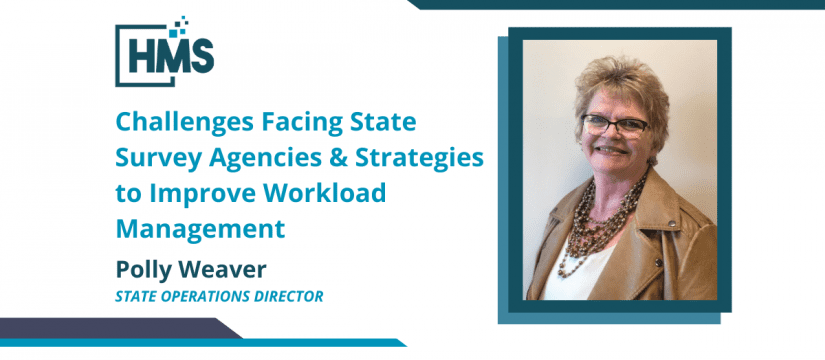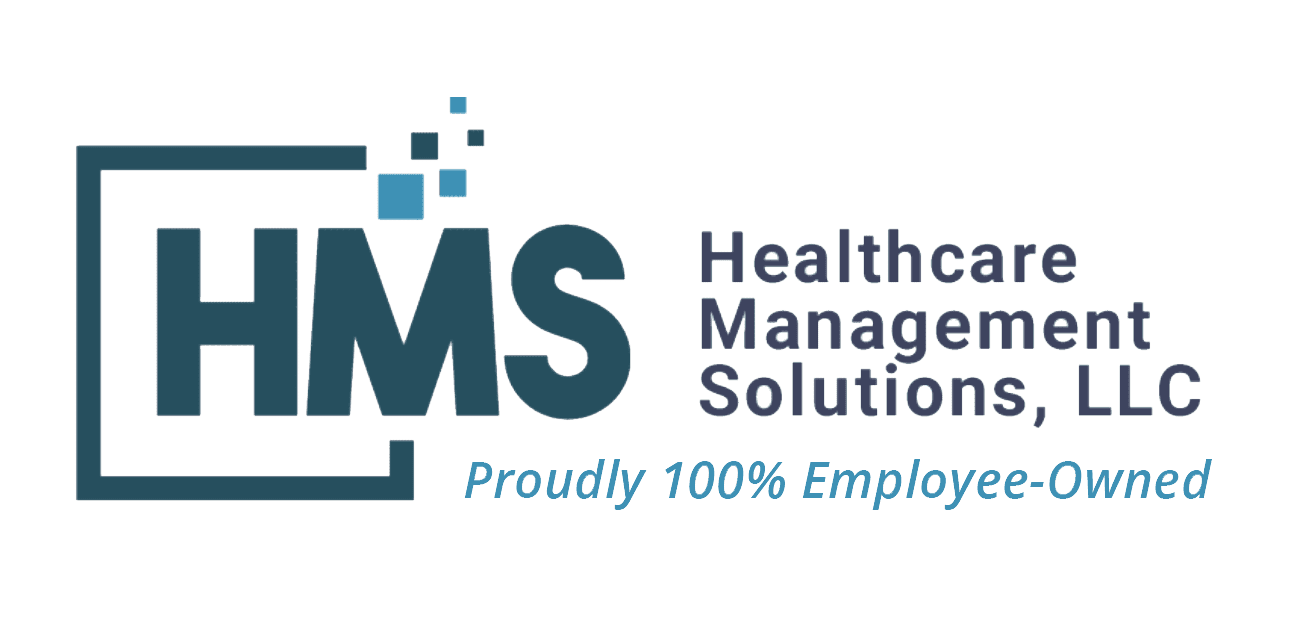
Challenges Facing State Survey Agencies & Strategies to Improve Workload Management
- April 23, 2021
- 0 Likes
- 1835 Views
- 0 Comments
From changes in the regulatory environment to state workload fluctuations and staff turnover, state survey agencies face numerous challenges as they manage survey programs and balance state and federal obligations. In addition, COVID-19 added a layer of complexity to state agency planning and management. Healthcare Management Solutions, LLC (HMS) State Operations Director and Subject Matter Leader Polly Weaver weighs in on strategies state agencies can use to overcome these challenges.
What are the current challenges for state survey agencies?
State agencies are struggling to balance state and federal workload priorities, while trying to maintain an effective workforce. Many states have seen an increased volume of survey and certification-related work. But as the workload is increasing, there is no consistent mechanism for additional staff to complete the work, particularly federal work. Furthermore, states typically can only add new positions with the approval of their state legislature. So, even if the federal government increases funding for additional work, dollars do not automatically translate to acquisition of new positions. Depending on how the money is disbursed from CMS, the state agencies may not be able to access the money until they are given state spending authority. So at the very best, there is typically a lag between increased funding and increased resources.
How is the pandemic further complicating existing challenges for state survey agencies?
The pandemic has created additional surveys, called focused infection control surveys, that state agencies must complete. These surveys typically require a short turnaround because state surveyors must return to the same facility for a follow-up survey within a few weeks. In June 2020, CMS issued guidance for COVID-19 survey activities which included enhanced enforcement for non-compliance to provide greater accountability, and consequences for failure to meet basic requirements. Preparations of these actions inevitably increase work for the state agencies with no additional resources. CMS offered guidance in January 2021 for completion of the surveys, helping state agencies manage the workload. However, it is still a new workload that must be completed and monitored. Additionally, since the onset of the pandemic, most routine survey activities were paused which resulted in a backlog of survey work. Therefore, state agencies must develop a recovery plan to prioritize future survey work.
What are the staff training challenges for state survey agencies?
From my experience, the greatest training challenge is finding the resources, including time for training. Many states do not have a dedicated training staff, therefore training activities are often added to an already overflowing workload. Surveyor turnover results in training many people for the same task and states often struggle with the necessary tools for training. For instance, a training need can be identified, but the state agency may not have staff with the technical background to effectively cover the material, or the technical staff are not equipped to provide the training. Plus, training does not end with reviewing technical materials in a classroom setting. Effective training includes a field component to ensure the surveyor translates the information they’ve learned into a compliance decision in the survey process. All these activities demand time and resources to complete, which is a big challenge for state survey agencies.
How can state survey agencies improve workload management?
State agencies need to have a better handle on the data associated with the workload, including:
- Current workload requirements that are defined by CMS in the budget agreement.
- Performance standards.
- What work needs to be done, what deadlines are approaching and what work is already overdue — because that work needs to be prioritized depending on the survey history of that entity.
- Survey scheduling considerations, such as coordinating a surveyors’ qualifications with scheduling data.
- Knowing the history to help guide a decision on how to prioritize the survey.
- Data from the last survey to assist with survey prioritization and facility location compared to the surveyor availability.
- Complaints need to be combined with recertification surveys, where it is appropriate, to enhance efficiencies. (This process also guides survey staffing and who needs to be involved based on the type of complaints that were filed and how many people are needed for that survey.)
What experience does HMS have with state survey agencies?
HMS has a team of subject matter experts who are highly experienced state and federal survey and certification veterans. HMS employees have a diverse background working directly with CMS and state agencies related to CMS policy, process implementation, and state organizations. Our team has over 200 years combined experience in areas like workload management. HMS has provided hands-on technical assistance to ten state agencies through state and federal contracts. This assistance includes coaching in workload management and survey scheduling. In various roles with states, we have identified, for instance, challenges state agencies are experiencing in efficiently accessing data to assist in managing and reporting workloads and facilitating compliance with applicable performance standards.
For example, HMS developed an application that provides real-time metrics for state agency management with a dashboard for performance monitoring to enhance reports for multiple federal systems in a consolidated browser-based application. This allows staff to quickly view data entered in the CMS system applications which assists state agencies in meeting state and federally mandated workload requirements related to the oversight of healthcare providers. This technology allows people who do not have a lot of experience in developing reports to easily access reports from the data systems that are managed by CMS.
How does HMS help state survey agencies?
HMS leverages all available resources to identify areas of concern in the state agency operation and utilizes a standardized approach to access various areas of the state agency. We conduct a gap analysis to identify disparities between the current situation and the future goal. Next, we develop a plan that comports to state and federal expectations to close those gaps. Through the technical assistance process, HMS provides support, documentation and tools to assist with state agency operations improvement. HMS has an extensive library of resources including training materials and tools to efficiently develop needed interventions while maintaining and adjusting resources needed to meet the individual states’ needs.
State agency responsibilities are broad and complex. Changes in the regulatory environment, survey processes, state workload fluctuations, and staff turnover, are the primary factors that put stress on state agency operations and impact survey timeliness and quality. The pandemic made state agency planning and management even harder, as state agencies must address additional survey backlogs, incorporate safeguards against the virus for staff and populations served, and continue daily operations.
Our technical assistance mission is to identify, analyze, and address operational challenges and provide a path toward performance improvement through coaching, training, and helping with development of processes and procedures.

